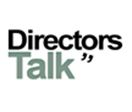The Times
Citigroup affiliates pay out to settle ‘false assurance’ charge: Two affiliates of Citigroup have agreed to pay nearly $180 million to settle charges that they misled investors in two hedge funds that their investment “walks like a bond, talks like a bond”, even though the funds were classified as carrying a significant risk to capital.
China explosions to cost insurers $1.5 billion: Two huge explosions at the Chinese port of Tianjin last week could leave insurers with a bill of up to $1.5 billion, according to early estimates.
U.S. fracking downturn hits Indian guar farmers: Indian farmers are feeling the pinch after a collapse in the price of guar gum, a key raw material used by frackers in the U.S. shale gas industry.
North Sea workers threaten first mass strikes since 1980s: Britain’s North Sea oil industry is set for an autu million of discontent, as workers threaten to take strike action for the first time in a generation after thousands of job cuts triggered by plunging prices.
Countryside opened up to oilmen in fracking drive: At least 2,400 square kilometres of the English countryside will be thrown open to oil explorers as the government announces a new drive to encourage fracking in Britain.
Amazon staff ‘chewed up and spat out by a brutal culture’: Employees in Amazon’s U.K. distribution centres have developed physical and mental illnesses because of their punishing work arrangements, the GMB trade union claimed .
Carillion wins £200 million schools contract under ‘son of PFI’: The biggest schools private finance initiative since Michael Gove scrapped Labour’s building programme five years ago has been signed off with plans to transform run-down secondaries in the Midlands.
Britain needs bricklayers, not more hairdressers: The government is in serious danger of failing to meet its affordable homes targets because Britain is not training enough bricklayers and plasterers.
Bank slated over Royal Mail given big new sale: The Treasury has raised eyebrows by hiring the investment bank at the centre of the botched Royal Mail privatisation for its latest sell-off.
Simon’s Cat gets fed by Endemol Shine: A simple 2-D animation of an ornery feline that is one of YouTube’s biggest stars has been snapped up by Endemol Shine, the maker of Big Brother.
The Independent
Quindell breaks with past to appoint new CEO and adviser Indro Mukerjee: The controversial outsourcer Quindell attempted to put an era of scandal behind it as the business ousted its City adviser and appointed a new Chief Executive.
Bovis, doing exactly as it should, shows why we have a housing crisis: While the City is funding the likes of Bovis and Persimmon, banks, and even the government-funded schemes, are still demanding high rates of interest and onerous terms for the smaller independent players. And without them, we’ll never build the homes we need.
Financial Times
Shell wins go-ahead for Arctic drilling: Royal Dutch Shell has been granted the last permit it needs to drill into possible oil reserves in the Arctic, raising its hopes of being able to make a significant discovery in one of the industry’s most challenging frontier regions.
Noble Group seeks to reassure shareholders: Noble Group launched a renewed effort to reassure shareholders on Monday, telling an investor day event in Singapore that it is open to selling even “core” parts of its business to shore up its balance sheet and restore confidence.
Investors cut gold holdings by $2.3 billion: Investors cut their holdings in gold exchange-traded products by $2.3 billion last month as prices fell to their lowest level in five years.
Nigeria state oil group NNPC taps private sector for top ranks: The new head of Nigeria’s state oil company has tapped the private sector as part of an overhaul of senior ranks intended to clean up the entity at the heart of the country’s economy.
China shadow banks appeal for government bailout: The collapse of a state-owned credit guarantee company in China’s rust belt has again shone a spotlight on risk from bad debt and moral hazard in the country’s shadow banking system.
Carlyle considers future involvement in $4 billion credit hedge fund: Carlyle is considering is future involvement with its $4 billion credit hedge fund Claren Road after investors asked to pull almost half of their money out.
Dallas Fed picks former Goldman Sachs banker as new president: The Dallas Federal Reserve has ended speculation and appointed former Goldman Sachs Executive Robert Steven Kaplan as its next president, putting another non-economist in line to take a seat on the U.S. Federal Reserve’s policy-setting committee.
Deutsche Bank revamps its FIC arm: Deutsche Bank has reorganised its sprawling fixed income and currencies business to make it more accountable and efficient, as new Boss John Cryan looks for ways to improve earnings at Germany’s biggest lender.
Banks braced for billions in civil claims over forex rate rigging: Global banks are facing billions of pounds-worth of civil claims in London and Asia over the rigging of currency markets, following a landmark legal settlement in New York.
NHS watchdog warns on overprescribing of antibiotics: Overprescribing of antibiotics remains commonplace in spite of growing publicity about the rise of drug-resistant infections, according to the National Institute for Health and Care Excellence.
Norway fund excludes four Asian groups over palm oil links: Norway’s $870 billion oil fund excluded four of Asia’s biggest companies because of concerns over severe environmental damage at Indonesian palm oil plantations.
BuzzFeed looks to go viral in Japanese: BuzzFeed is launching a joint venture with Yahoo Japan, the country’s top internet portal, to create a Japanese-language version of the viral news and entertainment site.
QVC Owner buys online retailer Zulily for $2.4 billion: The Owner of shopping channel QVC has bought an online shopping site aimed at young mums for $2.4 billion, in an effort to spur growth and gain exposure to the other’s customers.
Lotte feud renews spotlight on chaebol risk: As South Korea marks the 70th anniversary of liberation from a bitterly remembered occupation by Japan, the Korean-Japanese family controlling one of its largest business groups has chosen an awkward moment for an undignified public fight.
Cable boost at heart of Millicom’s Latin American ambitions: Millicom intends to become the second-largest telecoms group in Latin America after Carlos Slim’s América Móvil as part of an ambitious investment programme in cable and mobile services.
Canada’s Brookfield clinches A$8.9 billion Asciano takeover: Canada’s Brookfield is to acquire Asciano in a A$8.9 billion (U.S.$6.6 billion) deal that would mark the largest takeover of an Australian company since 2011.
Lex:
H&M: loose threads: New York is a centre for fashion retail. Yet Hennes & Mauritz, the Swedish fashion retailer, may have opened its largest store there recently for another reason: it could use the dollar revenue. H&M has considerable exposure to weak European economies and rapidly slowing emerging ones, but has just a tenth of its sales in the U.S.. The Euro’s sharp decline in the first half of this year put pressure on profit margins. More to the point, half of H&M’s turnover comes from struggling Eurozone markets. Add in emerging economies and exposure to cyclically soft markets rises to two-thirds. It is no surprise, then, that H&M’s valuation – averaging around 25 times forward earnings – has deflated relative to the rest of the market since 2013. The multiple has hardly moved even as the market’s as a whole has risen, and the retailer’s turnover has surged. Sales have grown by more than 40% over this two-year period. The problem: the retailer’s profit margins have slipped over the same period. Lifting prices is hard in economies struggling to grow. This trend does not mean red will soon be the new black. H&M still plans to add 400 stores worldwide this year – an increase of a tenth – particularly in the U.S. and China. Monday’s July sales data implied a 6% like-for-like improvement, considerably better than expected, according to Citi. That boosted the retailer’s shares, which have already rallied 13% since early July, well ahead of the Swedish market and even competitor Inditex. That gain comes partly because of a recent weakening of the Swedish krone against the Euro, which should support profit margins at a time when cotton yarn and fabric input prices have stopped falling.
Goldman Sachs: missing mass affluent: With every passing year Goldman Sachs goes more retail. Sure, there is no Goldman branch in Poughkeepsie. There will be no free toasters for new customers, as Lloyd Blankfein once quipped. But so what? Even traditional retail banks are busy closing branches and building online offerings. So is Goldman, which last week agreed to assume $16 billion of online deposits from GE Capital Bank. The idea is that sticky deposits reduce Goldman’s reliance on short-term wholesale funding, which the Federal Reserve sees as too flighty in a crisis. This is merely a funding source, suggests Goldman, supporting the main business of advising, trading with and lending to institutional clients. But the sheer size of Goldman’s bank is now undisguisable. Its bank deposits are approaching $100 billion, trebling in four years, and the GE Capital deal will take them over 10% of overall assets for the first time. Goldman has considered even bigger deals such as an acquisition of ING Direct’s U.S. business, with $82 billion of deposits (it was ultimately sold to Capital One in 2012). Yet while Goldman is being sucked into retail banking, it is forsaking an alternative, less alien strategy: providing advice and selling securities to affluent individuals. Goldman’s small private bank has a minimum account size of $10 million. Morgan Stanley has grown a large wealth management operation which caters to those with a few hundred thousand dollars. Those customers have plenty of cash, allowing Morgan Stanley to build the 11th biggest bank in the country by deposits.
Bovis: getting up again: As workers bang together a new suburban spec home in the U.K., a radio blares in the background. Is that Chumbawamba’s “Tubthumping” hit: “I get knocked down/but I get up again/you’re never going to keep me down”? It sums up the mood among cycle-hardened housebuilders. May’s election was not a spoiler after all, and low interest rates and a government scheme for first-time buyers have been a boon. Yet Bovis spoilt the party on Monday: its shares were nearly 6% lower at one stage — despite well-trailed half-year results — after its margin disappointed. Given a 30% share price rise this year, some profit-taking was inevitable. But although revenue was 9% higher in the first half on record unit sales, Bovis’s operating margin — a peer-lagging 16% — hardly improved. Put that down to a higher proportion of lower-margin sales of social housing and high overheads outweighing price increases. So much for the past. The second half should be more harmonious, with its higher rate of completions and less social housing in the mix. Overheads will be better covered, too. Bovis is confident enough to confirm its full-year dividend already. But, trading on 9 times prospective 2016 earnings, its stock market rating suggests investors first want reassurance on its ability to improve its margin. Bovis trades at a 10% discount to peer Bellway, whose first-half revenue was 18% higher, and is on track to beat a full-year margin of 20%. Taylor Wimpey, the biggest housebuilder by market value, is already past 19% and has promised a £300 million extra cash return next year, more than this year’s.
Lombard:
Quindell may now have theChief executor it needs: Commiserations to Indro Mukerjee, who applied for a job at Quindell and ended up being appointedChief Executive. Lombard assumes his other option was to become Chelsea’s team doctor. “You know, some people say that CEO stands for customers, employees and Owners,” Mr Mukerjee said of his new role, naming some of the people who would have turned it down. Quindell — lest we forget — burnt through £129 million of cash last year, and faces investigations from the Serious Fraud Office and the Financial Conduct Authority. It is now made up of a few lossmaking insurance software businesses, whose potential is anyone’s guess. Mr Mukerjee is “really amazing,” says one former associate. His experience has come in the tech sector, “matching compelling value propositions to growing markets”, Quindell said. This mainly seems to have involved breaking up companies: first, C-MAC MicroTechnology, a private-equity backed group that split into three, then Plastic Logic, which was trying to build bendy electronic screens. Plastic Logic — whose biggest investor is the Russian state’s nanotechnology fund — has sold its factory, and spun out a new IP-focused company called FlexEnable.
Aggressive, but not in a bad way?: When do investors start worrying about aggressive company culture? Possible answer: only when the lawsuits start. Take Amazon. Jeff Bezos’s retailing cult was the subject of a New York Times exposé last weekend. It claimed employees can be subjected to harrowing feedback processes, even when dealing with personal tragedy. Many staff left, and several wanted to sue. But, as a lawyer told the New York Times, “Unfairness is not illegal.” Compare that with those other dysfunctional workplaces: banks. Mucking around with financial markets is — who knew — unfair and illegal. The banks’ latest comeuppance looms in the form of billions of dollars in fines for currency-rigging claims. So a survey by Which? might alarm some investors. In the survey, 28% of sales staff at Barclays, HSBC, Lloyds, Royal Bank of Scotland and Santander said they sometimes feel as if they’re “expected to sell regardless of whether it’s appropriate” for the customer.
The Daily Telegraph
World shipping slump deepens as China retreats: World shipping has fallen into a deep slump over the late summer, dashing hopes of a quick recovery from the global trade recession earlier this year and heightening fears that the six-year economic expansion may be on its last legs.
Supermarkets aren’t the villains in Britain’s milk crisis: While there are clearly big differences between the two commodities, there are also marked similarities between the oil and dairy markets. Both are tough industries and both are international markets that are hugely influenced by a combination of global over-production and reduced demand, which have had an adverse impact on U.K. producers in the past year.
Greek government on its ‘last legs’ while Angela Merkel faces growing rebellion in Berlin: Greek MPs are poised to hold a vote of confidence in the government of Alexis Tsipras after Leftist party rebels deserted the prime Ministerover the punishing terms of a third international bail-out agreement.
Cargill capitalises on growing demand for fish with £959 million acquisition of salmon feed maker: Cargill, the world’s largest grain trader, has bought Norwegian salmon-feed supplier Ewos, in a bid to gain exposure to the fast-growing market for farmed fish and shrimp.
Government target of 200,000 new homes a year will be difficult to achieve, says housebuilder: The Government has been “very supportive” of housebuilders, but it will be difficult for the industry to reach the target of 200,000 homes a year, the Chief Executive of one of Britain’s biggest housebuilders has said.
Gatwick intensifies assault on Airports Commission: Gatwick has intensified its attack on the Airport Commission by publishing a lengthy dossier of criticisms that it hopes will convince the Government to reject a third runway at Heathrow.
The Guardian
Global economy on course for muted growth this year and next, says Moody’s: The global economy is on course for muted growth this year and next as it faces risks from a slowdown in China, the prospect of higher interest rates in the U.S. and the lingering threat of a Greek exit from the Euro, according to the latest forecasts from Moody’s.
Yanis Varoufakis: bailout deal allows Greek oligarchs to maintain grip: Greece’s former Finance MinisterYanis Varoufakis has accused European leaders of allowing oligarchs to maintain their stranglehold on Greek society while punishing ordinary people in a line-by-line critique of the country’s €86 billion (£61 billion) bailout deal.
Greek confidence vote looms as Merkel faces bailout rebellion – as it happened: Financial investors are watching the political fallout in Athens after its third aid programme was agreed on Friday night
Brompton Bicycle gears up for growth with bigger factory: Brompton Bicycle is doubling the size of its factory floor space to meet growing international demand for its folding bikes.
Jeff Bezos defends Amazon after NYT exposé of working practices: Amazon Founder andChief Executive Jeff Bezos has defended his company after allegations of employee cruelty made by the New York Times.
U.K. government to sell stake in King’s Cross redevelopment: The U.K. government has fired the starting gun on the sale of the taxpayer’s stake in London’s King’s Cross development, as the sell-off of state assets gathers pace.
Daily Mail
Surrey cricket club bowled over by bond for new stand at the Oval: Surrey County Cricket Club has launched a ‘mini-bond’ to help fund the construction of a stand at The Oval – its ground where the final Ashes Test between England and Australia starts this week.
Airbus on cloud nine after signing £17 billion mega-deal for 250 jets with Indian budget airline IndiGo: Airbus has heralded its biggest-ever single order for 250 passenger jets worth £17billion from Indian budget carrier IndiGo.
SuperGroup Boss Euan Sutherland awarded £1.4 million shares windfall: The Boss of SuperGroup has been awarded shares worth £1.4 million. Euan Sutherland received just over 91,000 shares as part of an award that saw top Managers receive 221,000 shares – worth almost £4 million at ’s share price of 1535p, down 9p.
August house prices are the strongest since before financial crisis because of shortage of homes put up for sale: August house prices have been the strongest since before the financial crisis because of a shortage of homes put up for sale, research shows. Online estate agent Rightmove shows the price of property coming to market was down by just 0.8% – or £2,258 – in August compared to a post-credit-crunch average fall in the month of August of 1.5%.
Daily Express
New pension laws give Britain’s economy a boost: Britain’s “silver savers” are driving the country’s economic recovery with a bumper £3billion spending spree – as they cash in on new pension laws.
Desperate Cameron to take another trip around Europe to push for EU reforms: The Prime Minister will visit several European capitals in the coming weeks as he campaigns for reforms, according to Government insiders.
Cameron’s EU renegotiation branded a ‘con job’ amid plans to ‘stage row with France’: The Prime Minister’s plans for renegotiating Britain’s relationship with the EU were dismissed as nothing more than a “con job” as his alleged tactics for a promised in/out referendum were revealed.
The Scottish Herald
Investors cash-in as CXR Biosciences sold: A number of high profile Scottish investors have cashed in after CXR Biosciences was snapped up in what is believed to be a multi-million pound deal.
Business banking heavyweight leaving Royal Bank of Scotland: One of Scotland’s best known bankers, Ken Barclay, is leaving Royal Bank of Scotland after almost 40 years with the group.
Homecoming for Apex City of Glasgow Manager: Glaswegian Helen Gallagher is returning to her home city as general Manager of Apex Hotels’ new 104-bedroom City of Glasgow property.
Filshill lifts profits amid efficiency drive: JW Filshill, the Glasgow-based grocery wholesaler, has cited investment in technology and trimming operational costs as it lifted profits by more than 60% in its latest financial year.
Safestay seals bumper deal for Edinburgh Hostel: The Edinburgh Hostel, a building providing student and tourist accommodation in the Old Town, has been acquired for £14.9 million.
Wood Group wins contracts in Vietnam: Wood Group, which is thought to have shed around 1,000 U.K. jobs in response to the plunge in the oil price, has won two contracts to help Talisman Energy develop a new oil field off Vietnam.
Sterling Furniture invests £500,000 in cafe: Sterling Furniture has invested £500,000 in a revamped cafe at its main Tillicoultry base.
The Scotsman
Global growth halted by Europe, U.S. and China risks: THE global economy faces “muted” growth over the next two years, with the brakes being applied by risks from Europe, China and the U.S., an influential credit ratings agency warned.
Salmon feed giant Ewos swallowed in €1.35 billion deal: One of the world’s producers of feed for the salmon farming industry is to be taken over in a €1.35 billion (£958 million) deal.
Ten-pin bowling company takeover at risk: Plans by a ten-pin bowling operator to take over a smaller rival chain risk being struck out by the competition watchdog.
Telecoms firm TenTel rings up £170,000 funding: TenTel, the Borders-based telecoms firm aimed at the residential lettings market, is seeking to double its headcount after securing a £170,000 funding boost.
Housing demand helps Bovis built first-half sales: Housebuilder Bovis has delivered record sales for the first half of the year as it benefited from the buoyant conditions in the housing market.
H&M continues double-digit sales growth: Fashion retailer H&M has maintained its run of surging sales by posting its tenth consecutive month of double-digit growth.
City A.M.
All eyes on fed after shock drop: American traders will be poring over crunch sets of data this week after a key index plummeted to its lowest level since the depths of the recession in 2008-09.
Inmarsat’s new rocket launches on 28 August: Inmarsat has scheduled the launch of the third satellite of its Global Xpress array, after a delay in May caused the satellite telecommunications company to reduce its revenue and earnings forecast for the year.
Ubisense losses widen as on Europe’s woes: Ubisense Boss Richard Green labelled ’s first-half figures as “clearly disappointing”, after the enterprise solutions group announced widening losses on 2014.
Approvals of mortgages slip back in July: The number of mortgage approvals fell back in July against a backdrop of fears over a rise in the Bank of England’s interest rates, according to the latest Mortgage Monitor from e.surv, the U.K.’s largest chartered surveyor.
Wall St rises as home building sentiment up – New York Report: U.S. stocks rose after strong economic data boosted the housing sector and as investors bought recently battered shares in biotech and media.




